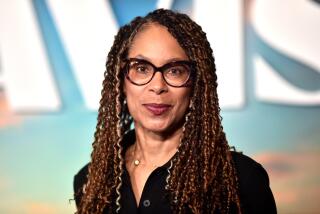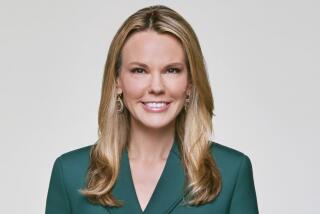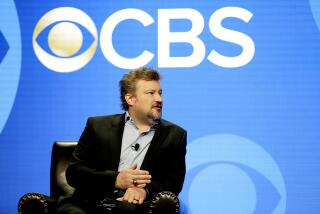Tone More Upbeat Than Usual at CBS Affiliates Convention
Meeting for the first time since the network’s acquisition by Westinghouse, CBS TV affiliates took on a more upbeat tone than in recent years, heartened by new management and a suddenly more competitive position in prime time.
The three-day annual convention of network executives and representatives from the more than 200 stations that carry CBS programming began Wednesday in Los Angeles with at least two major differences from last year.
Most notable was the absence of former CBS Chairman Laurence Tisch, who, during his tenure, irked affiliates on such matters as seeking to alter the compensation payments they receive for carrying network programs and losing major sports rights to competing networks.
Also widely discussed was the recent downturn by ABC, which helped put CBS back in the thick of the prime-time ratings race. Thanks to ABC declines this year, CBS has finished second in households during two consecutive major ratings sweeps periods--key months to affiliates because of their role in determining local advertising rates.
*
Even before its affiliates meeting in Orlando, Fla., next week, ABC committed a bit of a faux pas by notifying station personnel that they would receive a 20% discount on admissions to the Disney theme parks during their stay. When some station executives complained, the invitation was quickly amended, offering them and their families free use of the parks.
CBS, which still remains fourth in prime time in key demographics, consistently hammered home the point that the network has “the will to win,” as new Chairman Michael Jordan put it in welcoming the group at the Century Plaza Hotel on Wednesday evening. He acknowledged that the network has a long way to go but cited signs of “a very successful turnaround in the making.”
Ralph Gabbard, CBS affiliate board chairman, seemed to sum up the affiliate body’s sentiments by saying that its “pessimism hung over this room” at last year’s meeting. By contrast, stations are now at least encouraged by Westinghouse’s apparent commitment to broadcasting. It has sold various divisions to concentrate on that business and finance the $5.4-billion acquisition.
“This is not just another passing investment to them,” Gabbard said in a reference to Tisch.
Gabbard did express concern regarding the performance of CBS News, which trails the other networks in the nightly news race and is perceived to have a lack of “bench strength” behind anchor Dan Rather.
CBS spent much of Thursday outlining its prime-time strategy, which entails shifting back toward the network’s traditional appeal to older viewers after stumbling badly last year with a lineup that sought to attract the 18-to-49 age bracket, the one most coveted by advertisers.
According to CBS Entertainment President Leslie Moonves, who has almost completely turned over the executive roster in his division since joining the network last July, last year’s schedule “left our traditional viewers behind, instead of inviting them along with us.”
CBS said it will seek principally to reach the 35-to-54 demographic--a growth segment because of the aging baby boomer generation that more closely mirrors the network’s profile, which skews significantly older than its competitors.
*
The network’s marketing theme, “Welcome Home,” underscores the shift back toward that audience as well as a desire to program family-friendly fare, especially in earlier time slots.
CBS President Peter Lund, a credible figure among stations because of his background in that business, also alluded to reasons for optimism.
Lund used the forum to voice opposition to government intervention relating to three issues on which he was sure to receive a sympathetic ear from affiliates: labeling programs for content, mandating three hours per week of children’s programming and granting free air time to presidential candidates.
Although CBS has pledged to schedule three hours of educational programming for children by September 1997, Lund stressed that the effort is experimental and voluntary, maintaining that the network is “absolutely and unequivocally against any numerical quota for children’s programming.”
Lund also objected to government involvement in program labeling, saying the ratings system the networks are seeking to implement by January should grow out of current parental-advisory warnings.
CBS remains open to the notion of voluntarily providing free time for candidates during news programming, Lund said, in addition to the network’s regular election coverage.
More to Read
The biggest entertainment stories
Get our big stories about Hollywood, film, television, music, arts, culture and more right in your inbox as soon as they publish.
You may occasionally receive promotional content from the Los Angeles Times.










